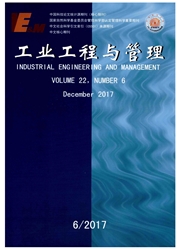

 中文摘要:
中文摘要:
在构建投资者情绪指数的基础上,分别采用线性和非线性Granger因果检验对投资者情绪与股票收益间的关系进行研究,并进一步研究不同市态下两者间的关系.研究结果表明,在全样本下,投资者情绪与股票收益间存在单向的线性因果关系和显著的双向非线性因果关系,表明使用非线性Granger因果检验的方法,能够更全面地了解中国投资者情绪与股票收益间的关系;在牛市和熊市状态下,投资者情绪与股票收益间的非线性因果关系并不一致,这与中国股票市场的实际情况是相符合的,说明中国股票市场中存在大量的非理性情绪.
 英文摘要:
英文摘要:
By constructing the investors' sentiment index and applying the linear and nonlinear Granger causality tests, the relationships between investors' sentiment and stock returns at different market states were studied. The empirical results showed that there is a one-way linear causality relationship and a significant two-way nonlinear causality relationship in the whole sample period; therefore, the relationship between investors' sentiment and stock returns can be understood more comprehensively by using the nonlinear causality test. The nonlinear causality relationships between them at the bull and bear market states are different, which is consistent with the reality of China' s stock market, the one filled with irrational sentiments.
 同期刊论文项目
同期刊论文项目
 同项目期刊论文
同项目期刊论文
 期刊信息
期刊信息
